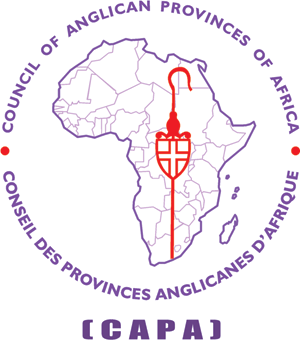“Innovations that are guided by smallholder farmers, adopted to local circumstances and sustainable for the economy and environment will be necessary to ensure food security in the future”
Mandate of the Commission: To contribute to interventions that seek to address the African food security situation, and advocate for enabling policies in the areas of budgetary allocation to agriculture, modernization of agriculture, promotion of farming technologies and practices such as Farming God’s Way, Hydroponics etc. that address environmental degradation and mitigate effects of climate change.
a) Investing in Agriculture
Africa is rich in minerals, oil and natural gas, fresh water, fish, forests, and wild game and birds, flora and fauna. Two thirds of Africans dependent on farming for their livelihoods, so boosting Africa’s agriculture can create economic opportunities, reduce malnutrition and poverty, and generate faster and fairer growth. To achieve that, African farmers need more investment, better access to financial services such as loans, and quality inputs such as seeds and fertilizers.
“You can just imagine the jobs that can be created if we went that route,” Mr. Annan said, referring to the entire value chain from field to final consumer, including farmers, suppliers, transporters, processors, and a myriad of other operators.
“Unfortunately, the neglect of these sectors has allowed inequality on our continent to accelerate,” he said. “Malnutrition is a political failure. And as the saying goes, people who live in democracy and under democratic rule do not starve,”
In spite of being the most important and main economic activity in Africa compared to other sectors, Agriculture has persistently not performed to expectations partly because women and youth, who play a crucial resource in agriculture and the rural economy as farmers, labourers and entrepreneurs, face more severe constraints in access to productive resources such as land, farm inputs, market and credit facilities. Moreover much of the land in Sub-Saharan Africa is still owned by farmers under customary tenure system. This limits women and youth’s access, control and ownership of land despite having many female-headed households. This limits their engagement in agriculture.
With all the above constraints coupled with droughts and floods and inability to match productivity/production with nutrition and food demands, Africa remains perpetually a food insecure region. 1 person in 4 people is undernourished and 3.1 children in Africa die from undernourishment; 1 out of 6 are underweight; 1 in 4 is stunted. 33 million attend school hungry. Africa has 13 of the countries with highest number of people living on less than 1.90 US dollars a day. Churches have large chunks of land that can be used as demonstration spaces for improved farming methods; Aqua and Livestock farming and agro-processing, afforestation and management of eco-systems. Churches can promote farming without soil or Hydroponics for people who have limited to no access to land.
b) Investing In Health & Nutrition
Economic performance is closely linked to good health. Agro-productivity and pro-duction can be undermined by ill health because people are able to undertake all socio-economic activities. That’s how come 5% of full-income growth in lowand- middle-income countries from 2000 to 2011 resulted from improved health overall.3 Studies have also demonstrated that investing in life (especially women, children and adolescents) guarantees a whole range of returns. An investment in Early Childhood programs of 7-105 guarantees better outcomes in education, health, sociability, economic productivity and reduced crime.4 A child born to a mother who can read is 50 per cent more likely to survive..
“World population continues to grow too rapidly in the poor countries and especially in Africa and this is a threat on many fronts. First, to ending extreme poverty itself in these places with rapid population growth. They are under tremendous ecological stress, eco-nomic stress, financial stress, and social stress. Africa’s population is on a path the UN es-timates to quadruple this century…. Africa’s average fertility rate is above 5.2 children”
A healthy and gainfully productive community is often more likely to generate wealth. That is further enhanced by Early Childhood Development and good nutrition and hygiene, including safe drinking water and clean air and environment for all.
That shall be boosted by a call for an additional US $ 5 per person per year to avert 5 million deaths; 147 child deaths; 32 million stillbirths in 74 countries by 2035.
Investing in health and wealth therefore guarantees economic sustainability and dignity of life for all. This also resonates with African values and ensures the sanctity of life, blessings of motherhood and family life as understood by the Anglican Church in Africa.
